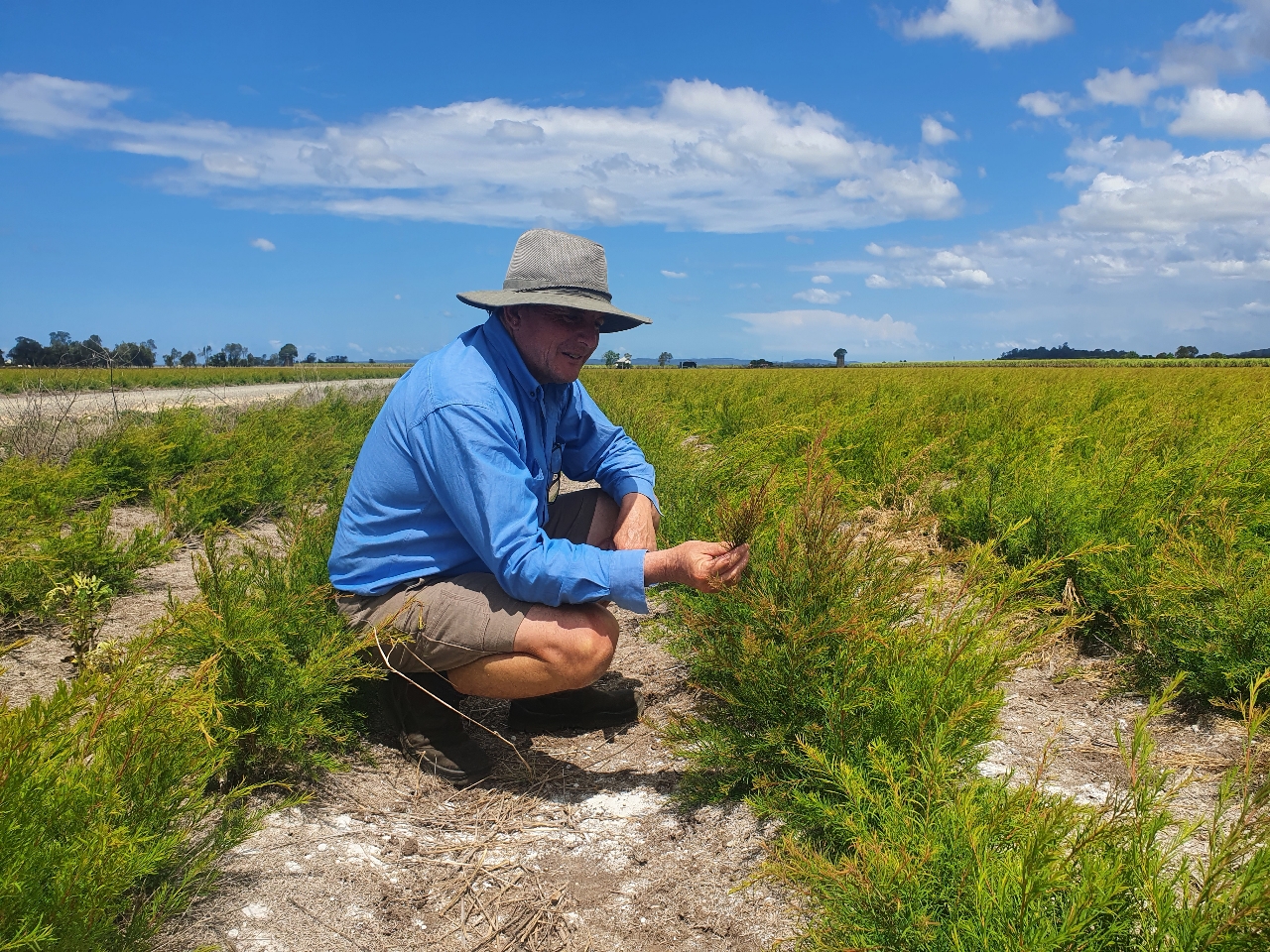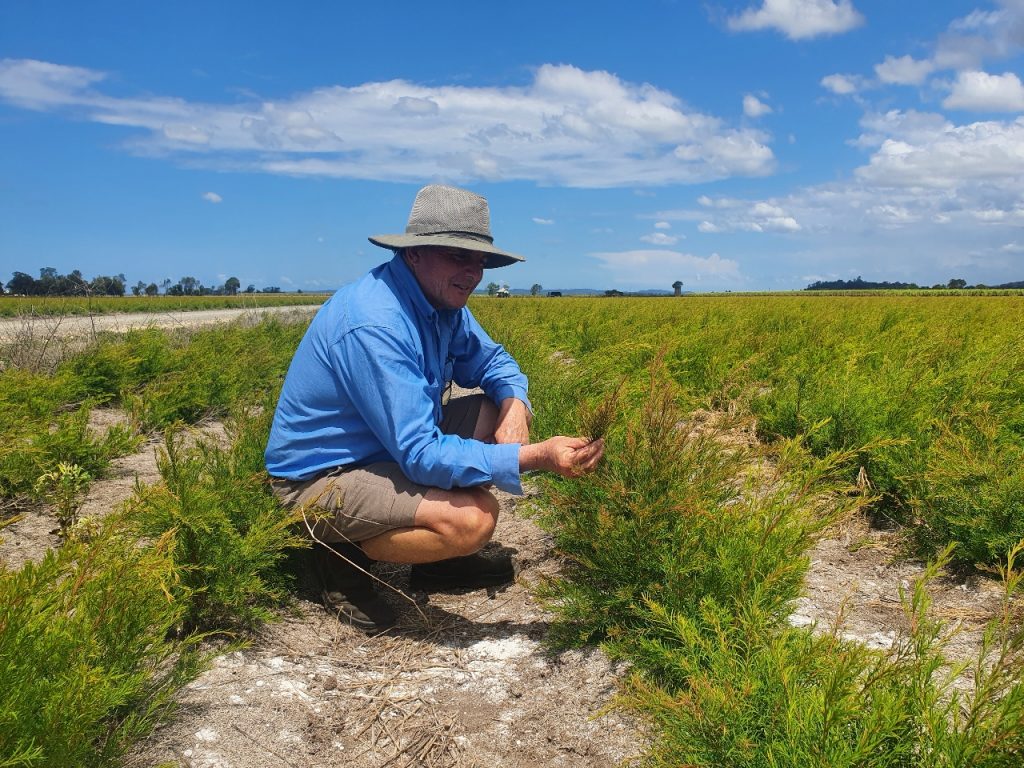Why is this research project important?
Invertebrate pests, like beetles, caterpillars, leaf hoppers and psyllids es, can reduce tea tree plantation yields by up to 50% in any given season. The 2019-20 season saw large reductions in biomass production in the leaves and stems, of the tea tree plants because of late and sustained insect attack. This single period of attack reduced yields by 30% in some areas compared to those where treatments were applied. Several insect pests are becoming more difficult to control with the pesticides currently used and higher yield losses are expected to occur as a result.
Crop loss due to disease has become more prominent affecting plantation health and productivity. Higher yielding seed lines developed by industry plant breeding has indirectly led to increased disease development. The higher biomass and density of plantation trees provides a more favourable environment for the development of some pathogens. Up to 30% of leaf biomass grown can be lost. Understanding the biology of these pathogens is essential to the development of any management strategy.
As tea tree production increases in Australia and overseas, and subsequent price pressures start to impact, high yielding plantations developed and sustained through efficient farming will be the most profitable. A roadmap for research and development into the management of invertebrate pests and diseases will be contribute to this improved efficiency.
Why did you get involved in the project?
I have been involved with the tea tree industry for 20 years as a consulting agronomist. I service the majority of growers and in recent years I have seen an increase in difficult to manage agronomic issues. The current tools used to manage invertebrate pests and diseases are not as effective as they once were and, new strategies and tools are needed. Typically, the industry has developed new strategies and tools to address new challenges as required and this ad hoc approach has only tried to deal with individual issues. This study will identify the existing problems and develop a framework or blueprint for future research activities aimed at solving them.
How will this research benefit the tea tree industry? Are there any learnings beyond this industry?
This project will identify the critical issues in relation to invertebrate pests and diseases in the tea tree industries. The findings of this study will allow future research to be directed in a proactive and coordinated way that gives the best outcomes in terms of yield improvement and efficiency of production. The development of more effective tools and strategies to combat these problems will benefit all tea tree producers in Australia.
The process developed by the study will be of benefit to other small industries facing similar problems as they develop. Conversely, linking with research groups from other industry where native species are a focus, such as forestry, will be beneficial.












